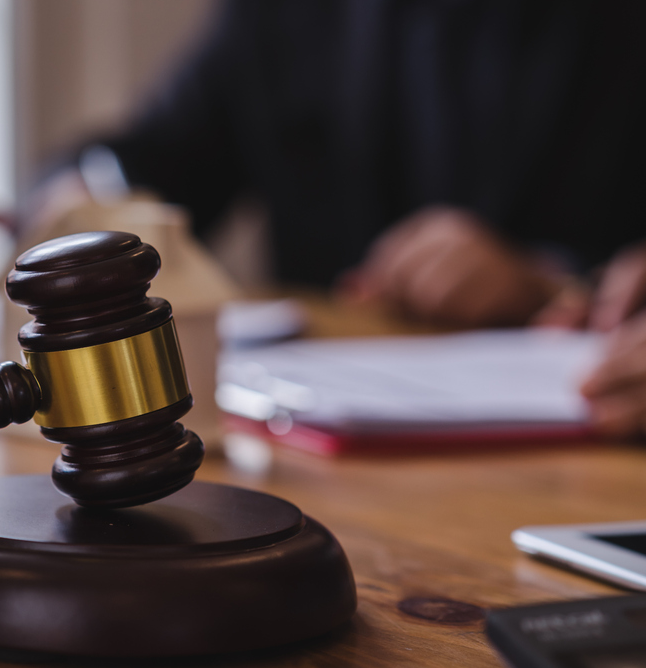Obtaining a Limited Driving Privilege (LDP) after DWI Arrest or Conviction
If you are charged with a DWI in North Carolina, your driver’s license will automatically be revoked for, in most cases, 30 days from the date of your arrest. If you are ultimately convicted of a DWI, you will face a second revocation from the date of your conviction. For many people charged with a DWI, however, it is possible to obtain what is known as a “limited driving privilege” during periods of revocation.
What is a Limited Driving Privilege (LDP) in North Carolina?
A limited driving privilege is, generally, a license to drive between the hours of 6a.m. and 8p.m., Monday through Friday, for work and school. If your job or school requires you to drive outside of those hours, you can provide a letter from your employer, or a class schedule from your school, and in many cases you can obtain an extension of the LDP to accommodate your specific needs — assuming you are otherwise eligible for the limited driving privilege.

Pre-Trial License Revocation and Limited Driving Privilege
Under the North Carolina code, N.C.G.S. § 20‑16.5, you will face automatic 30-day revocation of your driver’s license if you are charged with a DWI after blowing a .08 or higher on an approved chemical analysis test (EC/IR II), or a .04 if driving a commercial vehicle (or any level .01 or higher if the driver is under 21 years of age).
You can, however, obtain a limited driving privilege after 10 days have passed following revocation if the following conditions are met:
- At the time of the alleged offense, the individual had either a valid driver’s license or a license that had been expired for less than a year
- The individual does not have another pending DWI charge, or a new conviction for a DWI since the date of arrest in the current case
- The individual’s license has been revoked for at least 10 days if the revocation is for 30 days, or at least 30 days if the revocation is for 45 days
- The individual has obtained a substance abuse assessment from a mental health facility and registers for and agrees to participate in any recommended training or treatment
If the above conditions are met, you are eligible to petition the court for a limited driving privilege. You (or your attorney) will be required to provide the following to the court:
- Proof of insurance, in the form of a document called a DL 123 (your insurance company should be able to fax you or your attorney this document)
- Proof that you have completed a substance abuse assessment and enrolled in recommended treatment (the facility can fax the assessment documentation to you or your attorney)
- A certified copy of your 7-year driving history from the DMV
- A Petition for Limited Driving Privilege (AOC-CVR-9 )and Limited Driving Privilege Order (AOC-CVR-10 or AOC-CVR-11)
- A cashier’s check or cash in the amount of $100 to the clerk of the court
Once these materials are collected, your attorney can petition the court on your behalf, and your appearance will not be required. In Wake County, hearings for LDPs are held Monday through Friday at 11a.m. in Courtroom 1A. If you are granted a pre-trial limited driving privilege, however, you should be aware that the privilege expires at the end of the term of the original revocation (generally 30 or 45 days). At that time, you will have to pay an additional fee to have your regular driver’s license reinstated while your case is pending.
Post-DWI Conviction Limited Driving Privilege
If you are ultimately convicted of a DWI in North Carolina, you will face a second revocation of your driver’s license. On a first DWI conviction, you will face a mandatory revocation of one year. However, in many cases you will also be eligible for a limited driving privilege during this post-conviction revocation period. Your lawyer can assist with this process, which is independent of the pre-trial revocation and limited driving privilege procedure discussed above.
Limited Driving Privilege Following Breath Test Refusal
Finally, a different set of rules applies if you refused to submit to a chemical analysis following a DWI arrest. Upon your refusal, you will face an automatic revocation of one year by the DMV, for the refusal alone (though you do have a short period of time in which to challenge the revocation, based on, for example, a medical condition that made it impossible for you to submit to the breathalyzer test). In case of a revocation based on a refusal, you will not be eligible to apply for a limited driving privilege until six months have passed since the beginning of the revocation period.

Contact Us Today
Get your free consultation.

Call or Text: (919) 899-9404

Durham Office:
331 W Main St #604 Durham, NC 27701

Raleigh Office:
19 W Hargett St #508 Raleigh, NC 27601

Chapel Hill Office:
605 W Main St #206E, Carrboro, NC 27510




